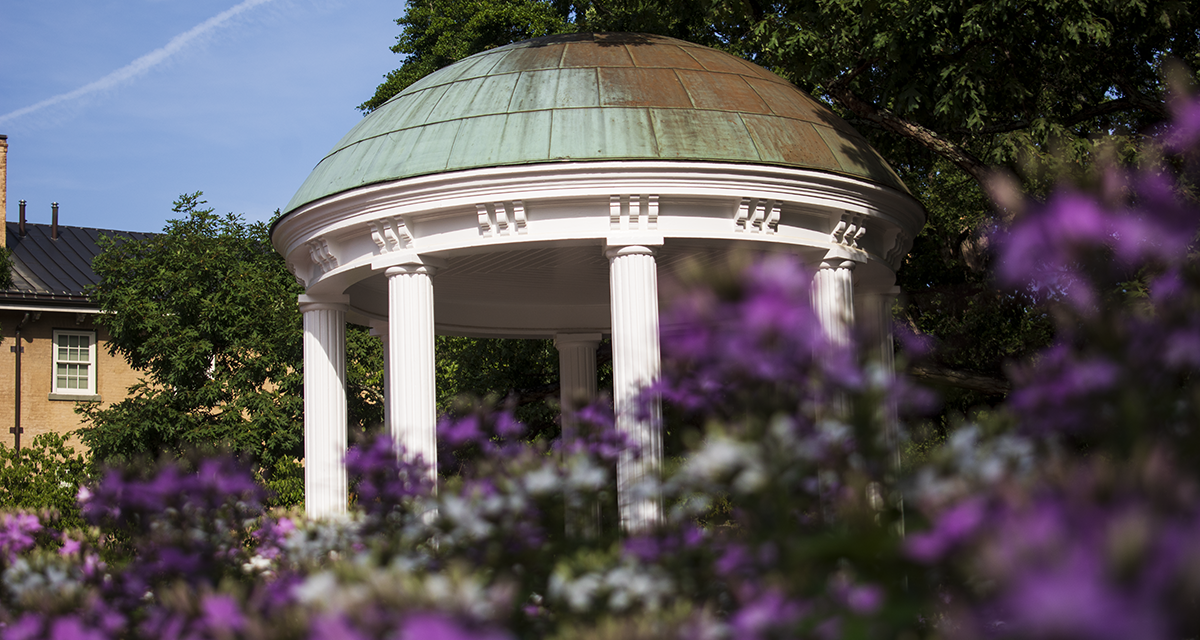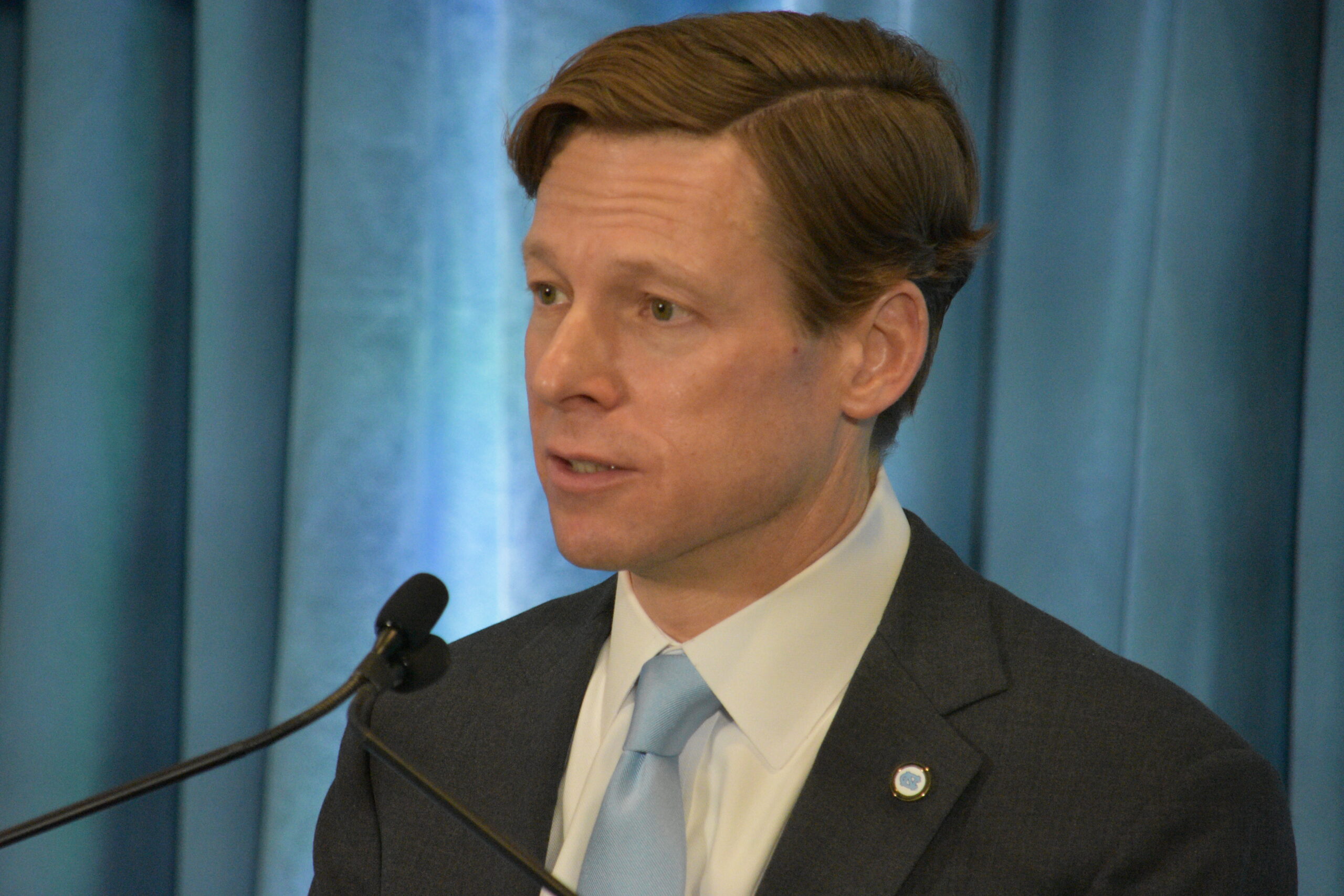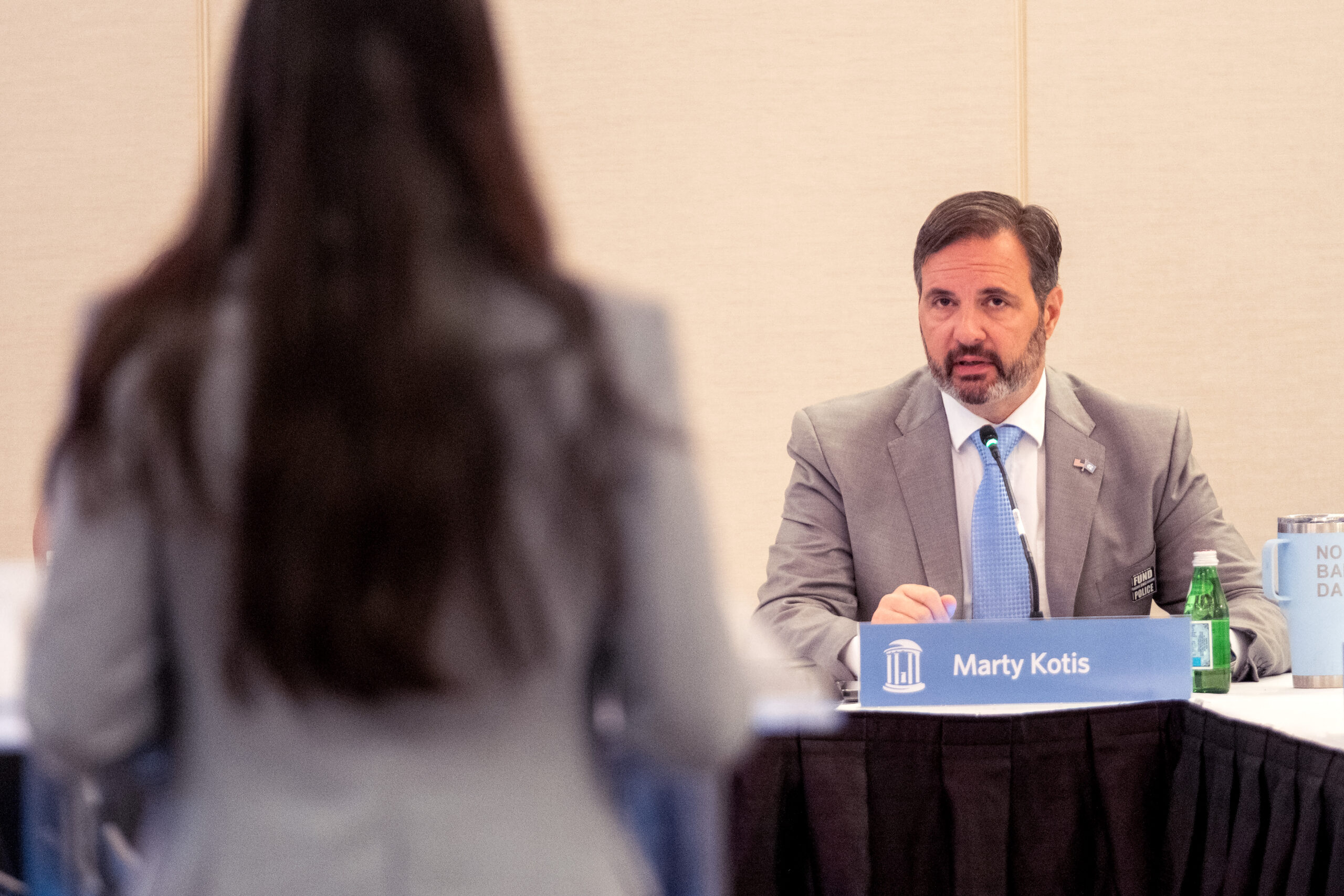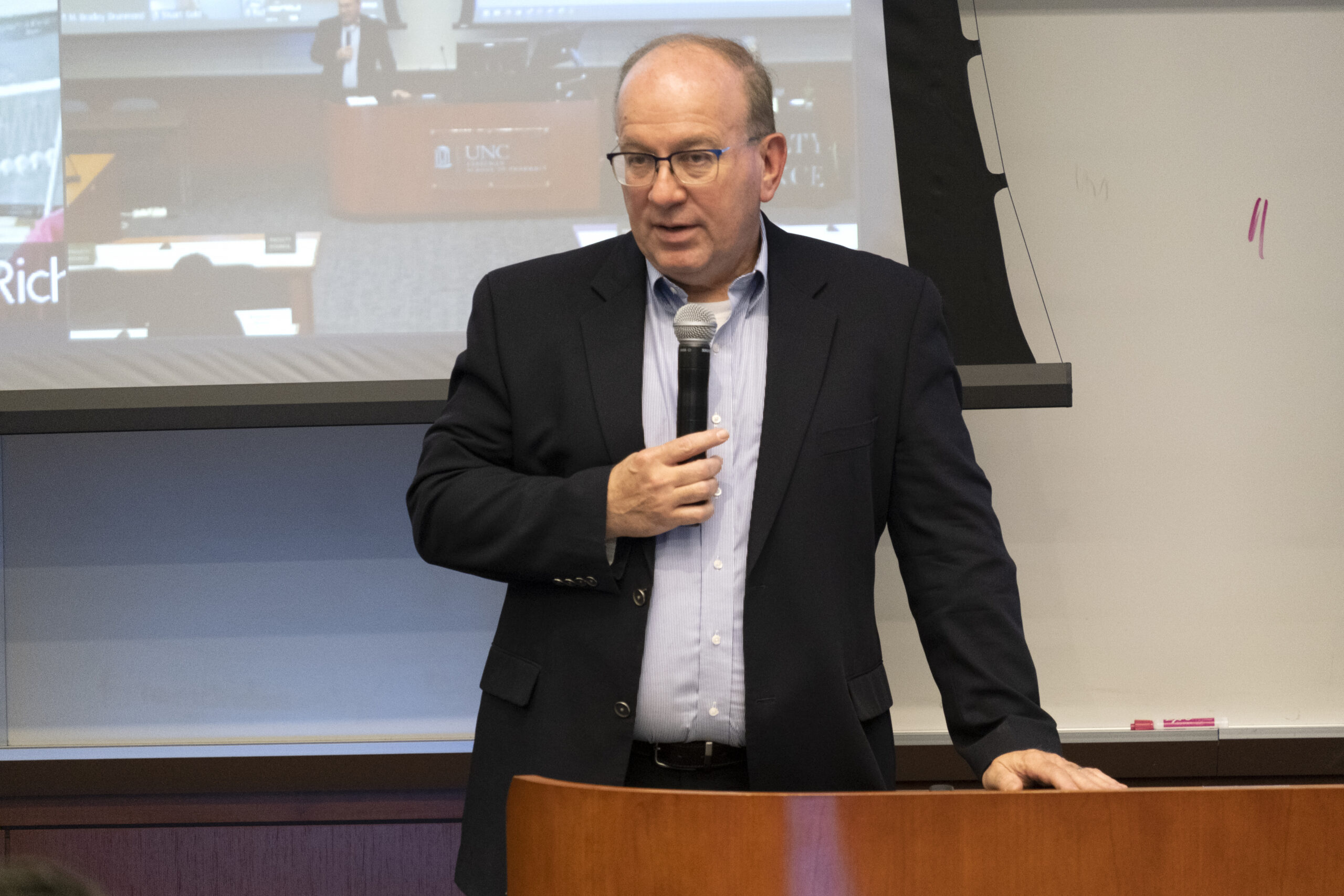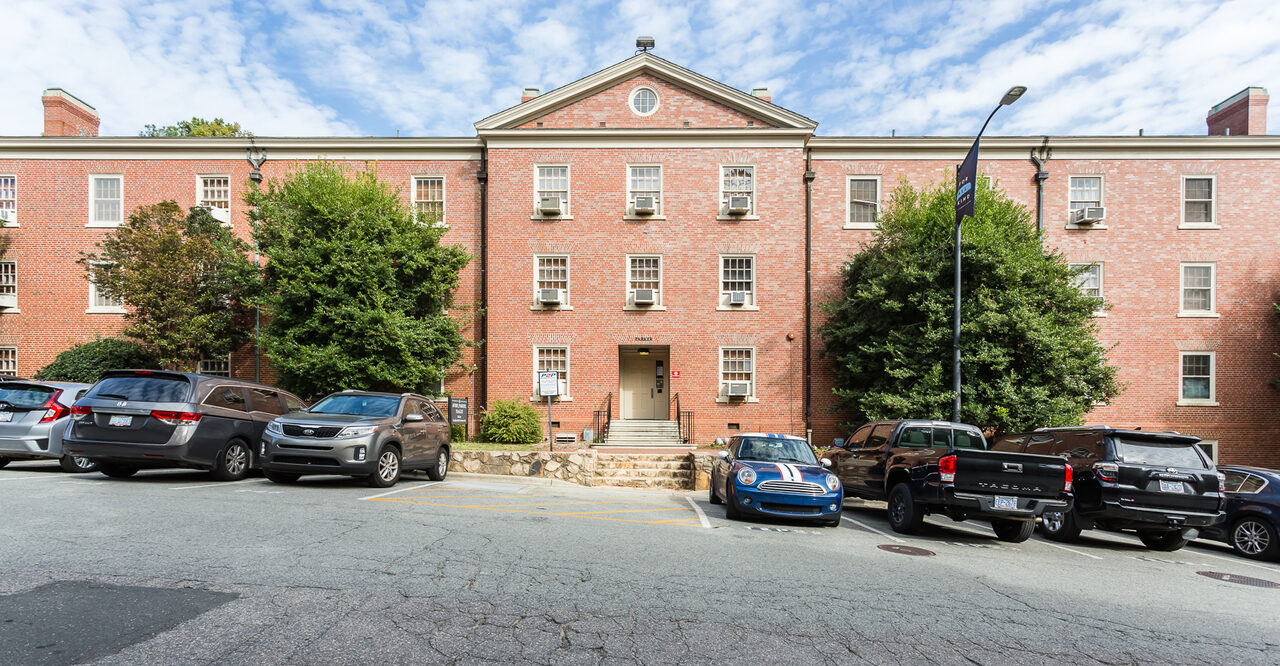The UNC Board of Trustees passed a motion on Wednesday to lift a 2015 moratorium put in place to prevent further changing of building names on campus.
The vote, which was conducted in a specially-called meeting of the board, passed 11-2. The motion to lift the measure came after trustees shared thoughts about UNC’s response to ongoing discussions of systemic racism and racial injustice in society.
In 2015, the board enacted the moratorium as part of three resolutions addressing unrest on campus surrounding the name of Saunders Hall and its namesake William L. Saunders, a colonel in the Confederate Army during the Civil War. The 16-year moratorium was meant to prevent further changes of building or monument names as UNC leadership worked to curate campus to provide more context to the university’s history. Along with the moratorium came the change of Saunders Hall to Carolina Hall.
The topics of systemic racism and racial injustice, particularly against African Americans, have been at the forefront of national discussion following the recent deaths of George Floyd and Breonna Taylor. Black student-led groups organized a rally and march on UNC campus, condemning the university’s failure to properly address its history of white supremacy and treatment of its African American community. Advocates for lifting the 16-year moratorium also recently began a petition, which has garnered thousands of signatures from the campus community.
On Wednesday, many members of the Board of Trustees indicated lifting the moratorium is a signal of leadership and would allow the university’s efforts to address its own shortcomings regarding racial injustice. They said recent discussions had outside of meetings led them to bringing the 2015 resolution under scrutiny.
Trustee Ralph Meekins said while certain matters are better discussed in-person by the board, this decision seemed easy to him.
“Our country is in turmoil,” he said on Wednesday. “I don’t care if I’m on Zoom, I can do it on phone. It’s easy to see we need to act now. One decision we can make easily is to end the moratorium [as a first step.]”
Many other trustees also voiced their support for now being a time to lift the moratorium, but some also advocated for doing it without making any immediate changes. Trustees Allie Ray McCullen and John Preyer, the dissenting votes against the motion, expressed concerns about the move bowing too much to “outside pressures.” Following the vote, Preyer said he is concerned about “the abdication of leadership” if the university made quick changes regarding building names, while McCullen said if the board took action every time of discontent on campus it would be “like the prisoners running the prison.” McCullen later apologized for his comment.
Trustee Dave Bolieck, who introduced the motion to repeal the moratorium, also clarified to the board that his measure simply lifted the 2015 resolution with the hope of further enabling university leadership to curate campus with proper contextualization. Chair of the board Richard Stevens later clarified no specific buildings have officially been singled out by the board for any consideration.
Chancellor Kevin Guskiewicz shared remarks on the board’s decision following its vote. He said it will allow the Commission on History, Race and a Way Forward he started to work more in partnership with the board when recommending ways UNC can address systemic racism within its community.
“This puts us on a road to take meaningful actions and I think it’s a really important next step,” said Guskiewicz. “Our faculty, staff and students have pushed to make UNC better for decades and I thank them for that. Today’s action sends a clear message to the Carolina community: we’re committed to work and study to learn from our past.”
Guskiewicz said he believed the 2015 Board of Trustees was responding to “a sense of the times” when it enacted the 16-year moratorium on name changes. But he said society had indicated time for a change like this, and the work of his predecessor’s Task Force on UNC-Chapel Hill History and now the work of his commission would be better suited without the moratorium in place.
“We’re going to create a future history in which every member of our campus community knows they belong and can thrive here at Carolina,” said the chancellor. “We want to be one of the preemminent universities in this space and we have incredible scholars here who study the history of the South and racism. We want a light to shine on this History, Race and a Way Forward commission and the tireless work that many have already put toward this effort.”
Stevens said the board’s next step is to craft and consider a set of guidelines on how to change a building’s name. He said its hope is to discuss and adopt the measure as soon as possible, with its July 16 full board meeting being the latest possible date.
“It certainly is a draft for a way forward in terms of how we do this,” said Stevens. “We want to do this carefully, but we want to do it right and in a timely manner.”
While several board members expressed disappointment that Wednesday’s discussion of an important issue could not be held in-person, Guskiewicz and Stevens both said there’s no guarantee the board’s next meeting not once again be held remotely. Both said when the board does return to campus, it will follow the same public health guidelines in place for the rest of the UNC community in Chapel Hill.
Chapelboro.com does not charge subscription fees. You can support local journalism and our mission to serve the community. Contribute today – every single dollar matters.

